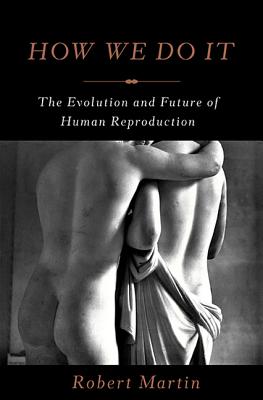How We Do It: The Evolution and Future of Human Reproduction

How We Do It: The Evolution and Future of Human Reproduction
Despite the widespread belief that natural is better when it comes to sex, pregnancy, and parenting, most of us have no idea what natural really means; the origins of our reproductive lives remain a mystery. Why are a quarter of a billion sperm cells needed to fertilize one egg? Are women really fertile for only a few days each month? How long should babies be breast-fed? In How We Do It, primatologist Robert Martin draws on forty years of research to locate the roots of everything from our sex cells to the way we care for newborns. He examines the procreative history of humans as well as that of our primate kin to reveal what's really natural when it comes to making and raising babies, and distinguish which behaviors we ought to continue -- and which we should not. Although it's not realistic to raise our children like our ancestors did, Martin's investigation reveals surprising consequences of -- and suggests ways to improve upon -- the way we do<
289.00Lei
289.00Lei
Livrare in 2-4 saptamani
Descrierea produsului
Despite the widespread belief that natural is better when it comes to sex, pregnancy, and parenting, most of us have no idea what natural really means; the origins of our reproductive lives remain a mystery. Why are a quarter of a billion sperm cells needed to fertilize one egg? Are women really fertile for only a few days each month? How long should babies be breast-fed? In How We Do It, primatologist Robert Martin draws on forty years of research to locate the roots of everything from our sex cells to the way we care for newborns. He examines the procreative history of humans as well as that of our primate kin to reveal what's really natural when it comes to making and raising babies, and distinguish which behaviors we ought to continue -- and which we should not. Although it's not realistic to raise our children like our ancestors did, Martin's investigation reveals surprising consequences of -- and suggests ways to improve upon -- the way we do<
Detaliile produsului











